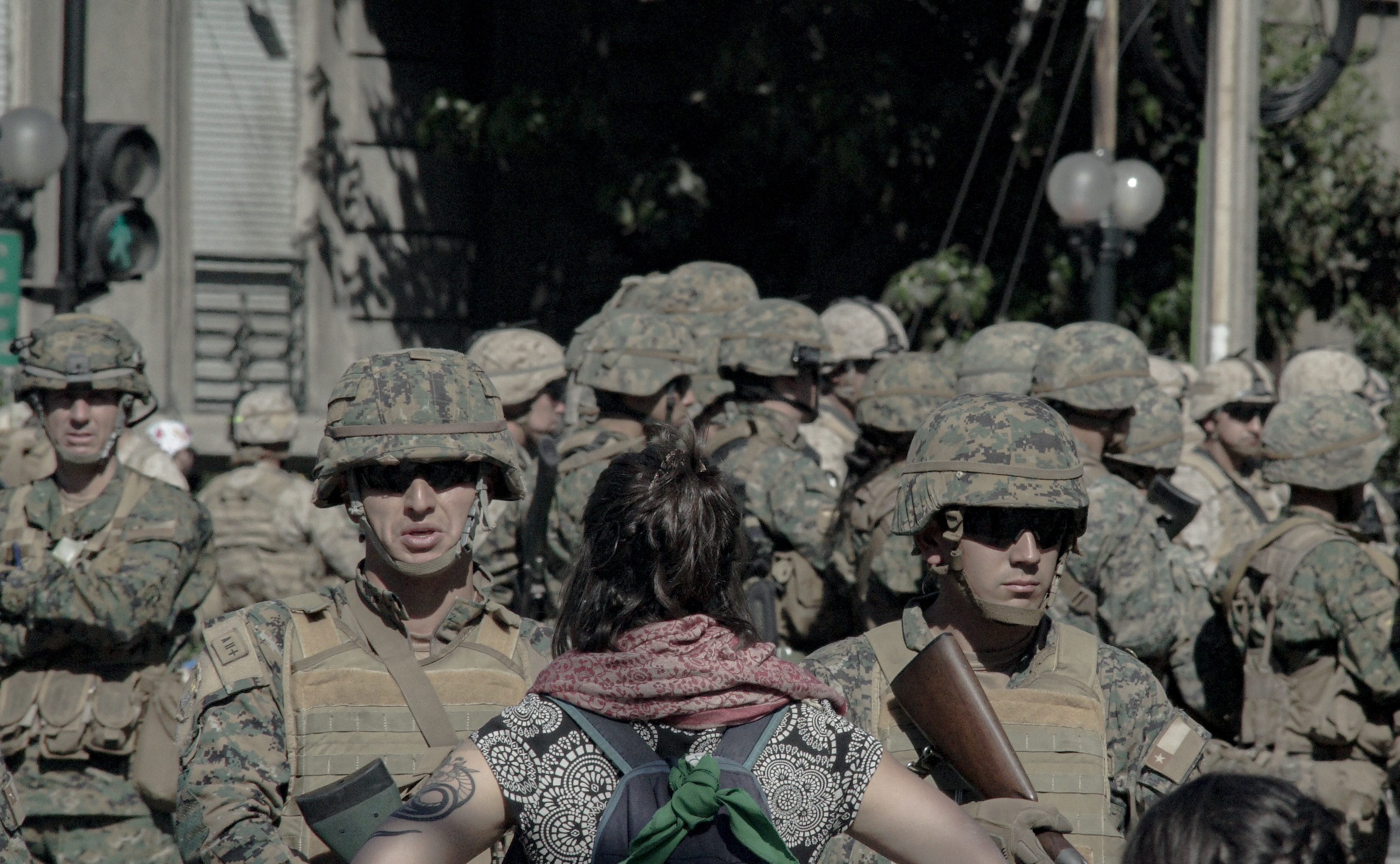CHILE AWAKENED
20 November 2019In recent weeks the cities and towns of Chile have become the scene of a social explosion that has stood out for its massiveness and radicalism. From the country’s largest cities like Santiago, Concepción and Viña del Mar, to the most extreme in the north like Arica, Iquique or Alto Hospicio, and in the extreme south like Coyhaique and Punta Arenas. Likewise, there are innumerable spaces recovered for the re-organization of life: workplaces, universities, public spaces such as fairs, squares and streets. All of them have become spaces of expression of the People that no longer fears to demand justice and dignity.
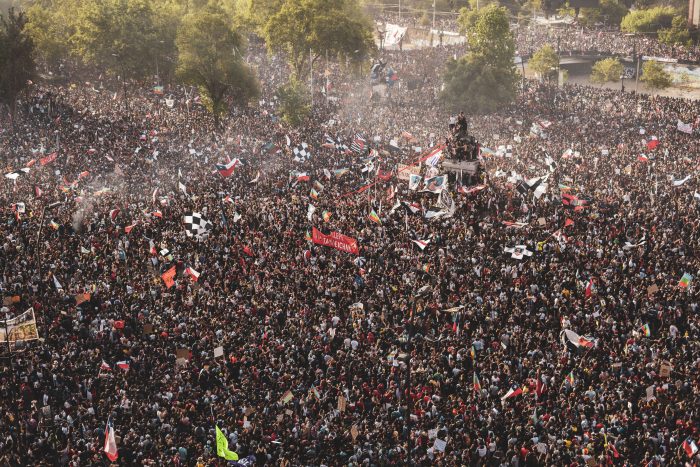
Elisa Torres. Santiago. Chile despertó
Chile shows us a daily life that is fractured and vindicated with each gesture and in each manifestation. Many symbols fall and others are renamed. An example of this is the former Plaza Italia, symbol of the meeting of the capital and the country, which these days has been a concentration point for more than a million demonstrators, and which, in connection with these appropriations, is resignified by changing its name and delivering with it a forceful message: “Plaza de la Dignidad”, thus shaping a landscape never before seen in the political history of the country.
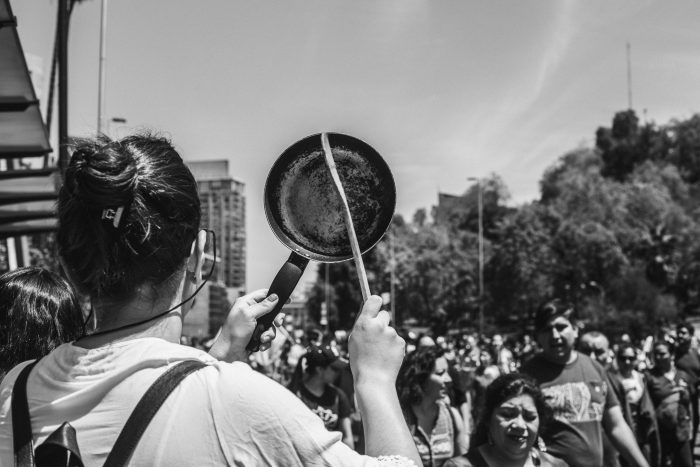
Romina Ramírez. Santiago. 22 de ocubre de 2019
These weeks have also been marked by the brutality and cruelty with which the extreme right-wing president, Sebastián Piñera, has responded to the demonstrations, openly declaring war on citizens and suspending the rule of law on October 18th, 2019. In this way, he has initiated a policy of systematic repression that is intensified day after day, using methods established in dictatorship and new legislation for the criminalization of social organization. In this action, this president must respond to the Chilean men and women for the rapes and sexual abuses committed by agents of the state, the torture and humiliations practiced illegally, the twenty dead, the hundreds of mutilated and the thousands of imprisoned.
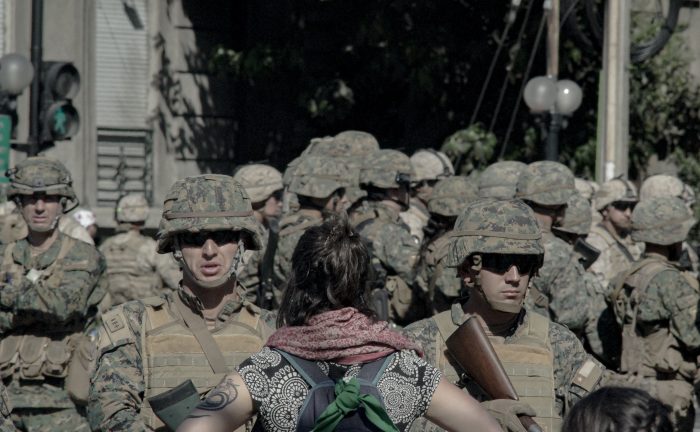
Rodolfo Durán Bilbao. Santiago. Erigiendo Espíritu
This exhibition seeks to show the strength of the People that in the process of awakening is repressed. Therefore, this exhibition is also a call to pay attention to the existing democracies, to the political-economic models that hegemonize us, to the spaces that we build and to how we exercise our right to organize ourselves for common demands and causes. Today, Chile shows us the crisis of the Latin American neoliberal model in its own cradle.
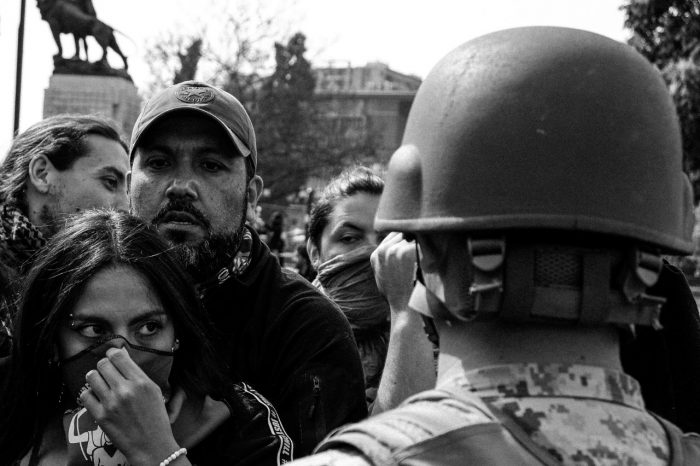
Javier Bahamondes. Santiago. Sábado 19 de octubre 2019
* Project carried out by Chilean students of Geography UNAM in the context of the Permanent Seminar Critical Perspectives of Territorial Urban Development of the Institute of Geography. The photos have been sent by mobilized people in Chile and abroad. We have received more than 400 photographs in one week and at the end of the call, some photos kept being sent.
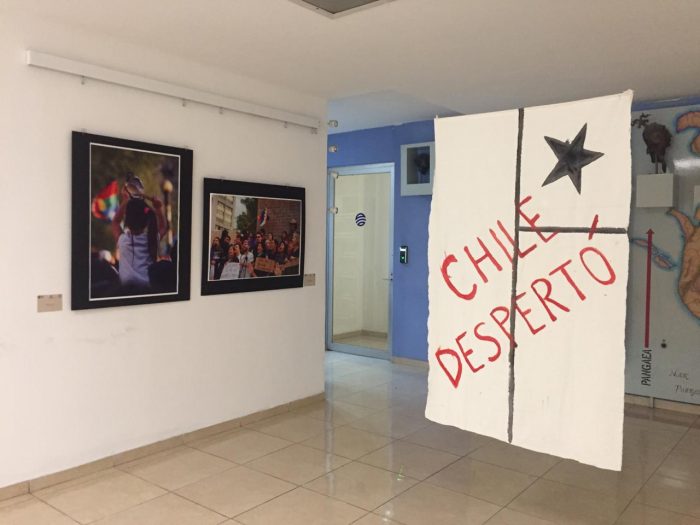
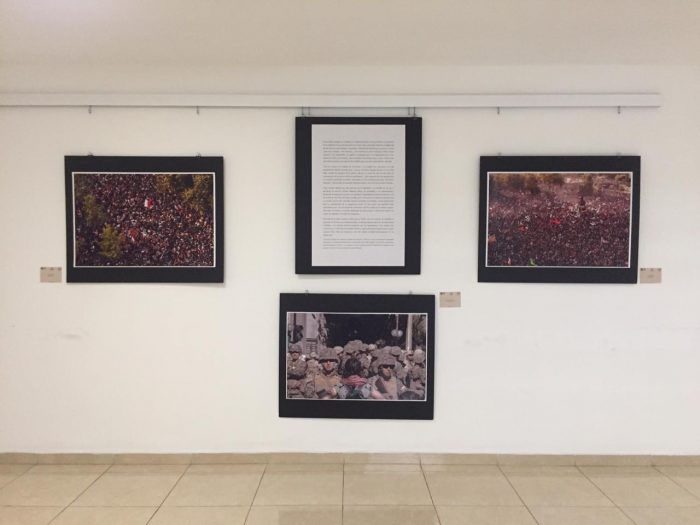
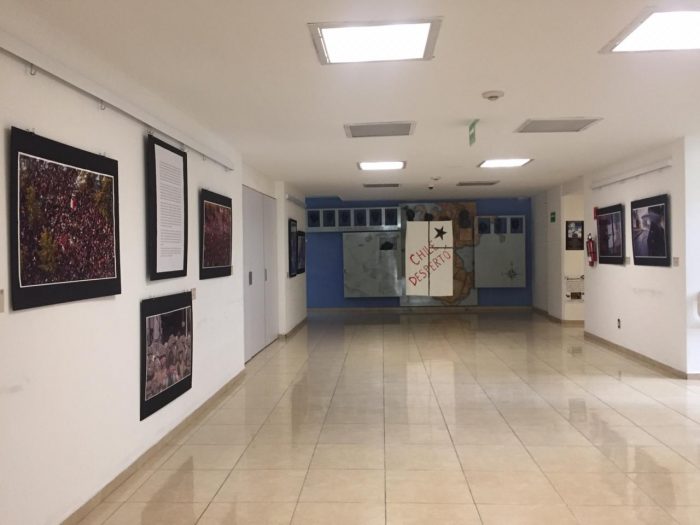
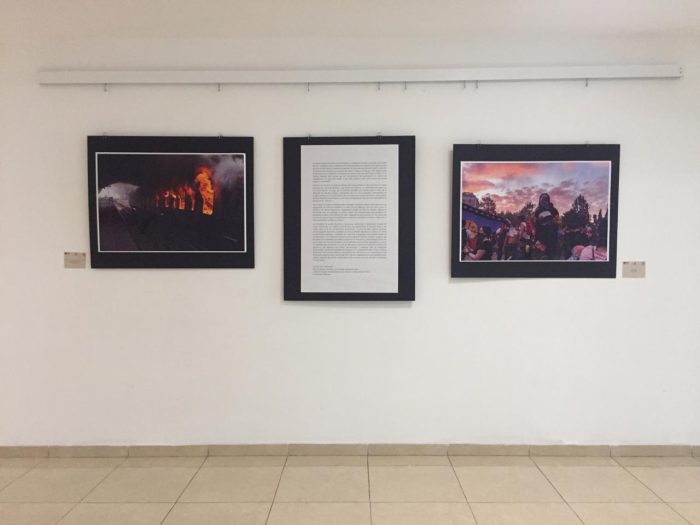
Review by Nicolás Celis
The narratives that maintain that photographs are linked only to moments of happy or nostalgic times are today challenged by the ferocity of records of a social outburst that can only be uncovered as the product of an intolerable connection between the normal and the abnormal, between the innocuous and the moving, between silence and shrieking. These images that we are witnessing today are part of a repertoire that shows that something has changed forever, of an itinerant but latent register that will remind us that experiences are capable of resignifying themselves over time: what we used to read as normal is now repulsive and intolerable.
Looking at the Chilean situation in this way, it would be irresponsible to see this only as a simple moment that lacks density or something lacking in substance. The moments are explosive, they only give off smoke, it is fire that is kept burning only while the flame of the barricade burns. The moment is fleeting and combustible, but the crisis is spectral and emancipatory, it does not dilute or fade into thin air; hence its resonances, its subsequent echoes – for some, of terror of losing their privileges and, for others, of dignity for determining the intransigence of social justice – persist.
Today, when a model collapses due to weariness, tiredness and weariness, another model must emerge that will surely not be up to the demands immediately, but will gradually adjust to the new expectations. Surely models will have to live together, some will articulate, others will show their teeth. There will be heterogeneity, there will be multiple proposals and they will even be difficult to trace. Regardless of the above, the crisis will cause the disputed power to inevitably have to re-inscribe its forms and relations in all spheres and at all levels.
Photographs of protest posters, of people marching and expressing themselves, agents of the state repressing, are extraordinary objects that exemplify the current situation and the oblique effects of democratic mobilizations. Through these registers we can learn about material aspects and messages that seek to spread hopes and fears and the way in which various schemes and strategies of resistance are creatively deployed during mobilizations. The photographs show a diversity of sizes, formats, languages that situate them as materials that patent moments of consciousness and social transformation. In this sense, remembering is a practice and not simply a spontaneous or visceral occurrence. However, for the authors and the author of this memorial setting and intervention there coexists an anguish and a hope that is disconcerting and paradoxical, because the selected photographs record the banality of the present in its daily life, because although, while confirming the fervor of a legitimate social outburst, it is enveloped in the intoxication of a cruel and bestial declaration of war, which seeks to repress and dehumanize citizens as illegitimate agents of change. Both practices of remembrance coexist, dialogue, confront and meet.
Nicolás Celis Valderrama
Dr© in history Pontificia Universidad Católica de Chile.
Centro de Estudios interdisciplinario de Infancia y Espacialidad- UDLA.
CENALTES Ediciones
VIDEO OF THE CONFERENCE ABOUT THE SITUATION IN CHILE





